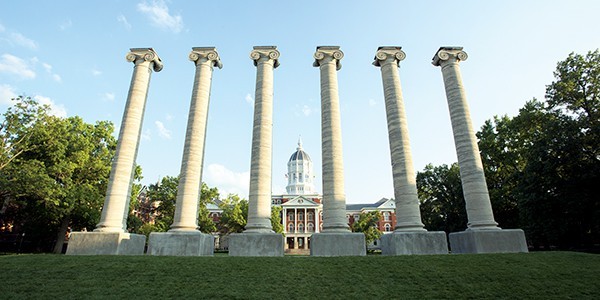
What’s the matter with Missouri? How did my home state — and my alma mater, the University of Missouri — seemingly become this year’s Mississippi, the preeminent battleground for the civil rights movement in this country?
It helps to remember that Missouri, like Tennessee, has two major cities where most of the state’s African Americans live, and vast small-town, rural expanses where the residents are mostly white, mostly conservative. An Ozark farmer from Salem and a black lawyer from St. Louis are both Missourians, but they don’t have much more than that in common.
Except they both probably root for the Mizzou Tigers.
The university has lately become a petri dish of sorts, where the cultures — rural and white, urban and black — collide. Black students, who make up seven percent of Mizzou’s student body, have reported numerous racial incidents in recent weeks: whites driving by black students and shouting the n-word; a swastika painted on a dorm in feces; and an incident where university President Tim Wolfe’s car bumped a protester during the homecoming parade and drove off without stopping.
In response, the student who was struck by the car started a hunger strike, vowing not to eat until Wolfe resigned. The faculty upped the ante, with nine deans signing a letter urging that Chancellor R. Bowen Loftin also needed to resign, blaming him for creating a “toxic environment through threat, fear, and intimidation.”
But the coup de grâce happened last Saturday night, when the Mizzou football team, which is 69 percent black, announced they would not play or practice again until Wolfe resigned. Less than 48 hours later he was gone. A day after that, Loftin also announced his resignation.
Funny how that works.
Let’s be honest, does anyone think that a student’s hunger strike, followed by demands from black students would have forced a resignation of the university president? Nope. How about if you throw in a supportive faculty and a growing number of white students? Maybe, but doubtful. How about if you toss in the football team refusing to play or practice until the president resigns? Bingo.
College football is big business, especially SEC football. Forfeiting a game means losing millions of dollars. It means the national media will descend onto your campus, bringing more bad PR. It means recruiting will be hurt, as black athletes perceive that the campus is hostile to African Americans. It means your football team will suck. Which means the stands won’t be full and your team won’t be on television as much. Which means your business, er, your grove of academe, will suffer financially.
Famed sociologist, Harry Edwards (who’s from East St. Louis, by the way), author of The Revolt of the Black Athlete, once noted that American football games, “look like Ghana on the field and Sweden in the stands.” University administrators have fostered and nurtured a system where their schools are inextricably tied — socially and economically — to the success of their football progams, which to a large degree are built through the labor of African-American athletes.
Up until now, they’ve held all the power, or least they thought they did. But as events at the University of Missouri demonstrated this week, the game is changing.